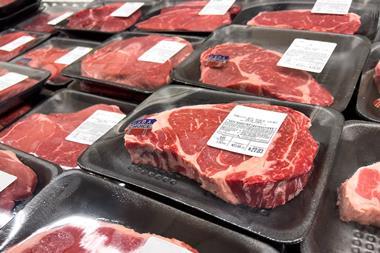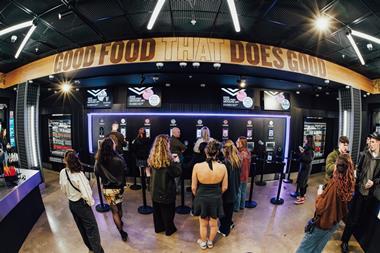Retailers hoping to cash in on the latest viral confectionery trends should take this week’s headlines as a warning, after the FSA issued two separate alerts relating to imported confectionery over the past 24 hours.
Yesterday, it urged UK businesses to stop importing and distributing American candy brand Jolly Rancher, as its products contain mineral oil aromatic hydrocarbons (MOAH), ingredients which are illegal in the UK as they are associated with an increased cancer risk.
Today, the FSA warned that some imported Dubai-style chocolate products currently being sold in the UK could be dangerous for people with food allergies, as they may not have the full ingredients list or allergen labelling required by UK law.
Both examples demonstrate the potential dangers faced by retailers and shoppers who jump on social media trends without doing their research.
Tapping the TikTok trends
Jolly Rancher isn’t a new brand – it has been available in the US since the 1950s – but it hasn’t had an official UK launch. That said, UK-based American candy stores, independent retailers and even major supermarkets have been stocking the sweets, as platforms like TikTok have given UK shoppers a window into global brands.
Across the pond, Jolly Rancher has responded directly to some TikTok trends. Following the bizarre freeze-dried sweets craze, which sees classic candy pieces blown up into crunchy treats, Jolly Rancher launched a dedicated Freeze Dried variant in March.
Last summer, a recipe for making Jolly Rancher ‘candy grapes’ – in which consumers melted down the sweets before dipping grapes in them – went viral on TikTok. It wasn’t all fun and games though. The high temperature of the melted sweets meant accidents resulted in several cases of children and adults being sent to hospital with serious burns – but the trend further boosted Jolly Rancher’s overseas profile, further encouraging UK retailers to tap the trend.
Retailers have also been busy innovating to keep up with the viral demand for Dubai-style chocolate. The original Dubai chocolate bar – stuffed with pistachio creme and pastry – was created in 2021 by British-Egyptian entrepreneur Sarah Hamouda, with the launch of her business Fix Dessert Chocolatier. But it was after Maria Vehera posted a video of herself eating one of Fix’s bars to TikTok in 2023 that the trend exploded.
While Lindt, Lidl and Marks & Spencer developed their own iterations of Dubai-style chocolate for the UK market, Morrisons, Iceland and Home Bargains have imported existing Dubai-style products from manufacturers based in Turkey, the UAE and Germany over recent months.
Import with caution
While the UK’s leading supermarkets and discounters will have teams dedicated to compliance, independent retailers need to take care when listing imported products. As the FSA states, all products made to UK standards should have labels in English containing the following information:
- The name of the food
- A list of ingredients, with allergens emphasised
- The weight of the food in grams
- A best-before or use-by date
- The name and address of the UK or EU business responsible for the product information (if the food is not from the UK or EU, the name and address of the importer must be included).
Small businesses selling imported goods should also check the ingredients are permitted under UK law, or risk having to throw away stock and losing money.
Leeds bakery Get Baked learnt this the hard way, when it was ordered to withdraw its raspberry glazed donut cookies from sale in 2021 after trading standards discovered the sprinkles contained the banned colouring E127.
Owner Rich Myers said at the time: “Our best-selling cookie, we’re not going to be able to sell them anymore. For a small independent business that only has a small menu, it’s a problem.”
Withdrawing stock is of course annoying and costly, but laws are there to keep shoppers safe. In the case of allergens, for instance, the tragic case of Natasha Ednan-Laperouse demonstrated how a lack of accurate on-pack information can have fatal consequences.
As social media platforms like TikTok continue to influence shoppers’ habits, being a first-mover feels increasingly important. But it’s worth a reminder that food safety should always be the industry’s first priority.




















No comments yet